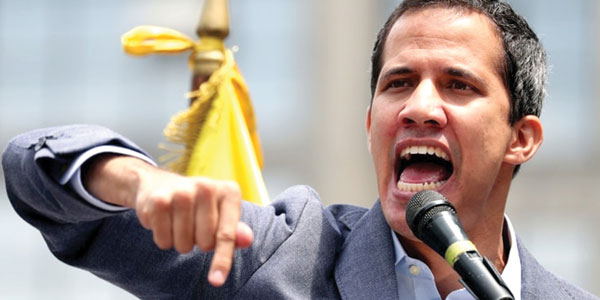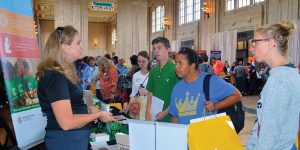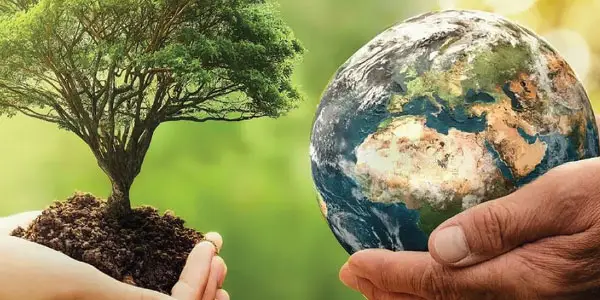
By Jorge Ramos
Juan Guaidó is really shaking things up in Venezuela. Twenty years after the Bolivarian revolution was begun under Hugo Chávez, Guaidó, the 35-year-old opposition politician, has finally forced the government of Nicolás Maduro to play defense.
Over 50 countries recognize Guaidó, who has served since January as head of Venezuela’s National Assembly, as the country’s rightful leader. Meanwhile, the pressure to restore democracy in Venezuela — and to do it quickly — is mounting, both domestically and internationally.
“How should I address you?” I asked Guaidó during a recent interview, via Skype. I was in Miami; he was somewhere in Venezuela.
The question was an important one. Maduro’s government in Caracas describes Guaidó as a self-proclaimed president. But Guaidó prefers another title, “Acting President of Venezuela by Mandate of the Constitution,” and offers his own explanation — namely, that he has invoked Article 233 of the Venezuelan Constitution, which prescribes that “when the president becomes permanently unavailable … the president of the National Assembly shall take charge of the presidency of the Republic.”
In Guaidó’s view, the office of the president became vacant following Venezuela’s monumentally fraudulent election in May 2018, and despite Maduro’s decision to cling to power illegally. It was then, after the inauguration of the dictator for a second term in January, that Guaidó was sworn in as interim president, taking Venezuela’s Chavistas by surprise.
Huge expectations are building up around Guaidó. After he was declared president, many Venezuelans hoped Maduro would be ousted quickly. That didn’t happen. And when the regime turned away humanitarian aid sent from abroad, preventing it from crossing Venezuela’s borders, they only grew emboldened.
I asked how Maduro can be unseated. “We must remain committed to ‘Operation Freedom’ and keep building up pressure within Venezuela,” Guaidó said. “And the international push that has been vital thus far must maintain momentum.”
In addition, Guaidó has offered an amnesty — approved by the National Assembly, the country’s legislative body — to members of the military and government officials who reject the regime, as well as the promise of free elections once Maduro is finally removed from office. But this hasn’t been enough.
Venezuela is at a stalemate. High-ranking military officers have refused to turn their back on Maduro. The atmosphere in the streets is one of fear. When I visited the country in February, I saw troops, police officers and “colectivos” (pro-Maduro groups of armed civilians) all over Caracas. Military guards patrol Miraflores Palace, the official presidential residence, as if the country was at war. In restaurants, people rarely voice their discontent with the regime for fear of being reported. Venezuela has become a police state, with thousands of intelligence agents sent from Cuba — a longtime ally — to prop it up.
Looking further back, Latin America has had to contend with a long and sad history of U.S. invasions. It begs the question: Would Guaidó consider invoking Article 187.11 of the constitution, authorizing foreign military missions in Venezuela? And could the topic end up splitting the opposition? “The subject is not a cause for division,” Guaidó said. “It is a possibility among many others available to us in our effort to rebuild Venezuela. It is a sensitive subject. And it wouldn’t be an act of external aggression, but rather of international cooperation. We would have to handle a situation like that responsibly.”
So, what can be done to solve the crisis? “We have three real options: a transitional government followed by an election; a sui generis transition, like in 1958 in Venezuela [when a military board unseated the dictator Marcos Pérez Jiménez]; or the use of force, but not necessarily involving foreign parties,” Guaidó said. “Right now, the armed forces are not happy with what Maduro is doing.”
So far, Maduro hasn’t attempted to arrest Guaidó, who has traveled in and out of Venezuela several times. In this tug of war, neither side is willing to relinquish a single inch of power to the other. But even this delicate balance is in itself a welcome change. It is a kind of balance that was never achieved while Hugo Chávez was alive.
Guaidó’s greatest accomplishment is that he has managed to give hope to the people of Venezuela, allowing them to imagine a different future, at a time when all hope seemed lost.
“When will we see you in Miraflores Palace?” I asked finally.
“We would like for it to happen in hours or days,” he answered cautiously. “Never before have we reached this point. And if we persist, I feel — and this is the general perception here in Venezuela — that it will happen very soon.”
P.S. You can watch my interview with Juan Guaidó here: bit.ly/2Wwn9Mg.
_________________________________________________________________________
Entrevista Con el presidente Juan Guaidó
Las cosas con Juan Guaidó son distintas. Tras 20 años de la revolución bolivariana en Venezuela que Hugo Chávez lideró hasta su muerte en 2013, Guaidó ha logrado poner a la defensiva a la dictadura de su sucesor, Nicolás Maduro. Más de 50 naciones reconocen a este joven de 35 años como el presidente legítimo del país. Además, hay una enorme presión interna e internacional para que Venezuela pronto vuelva a ser una democracia.
¿Cómo le llamo? le pregunté recientemente a Guaidó durante una entrevista de Skype, yo en Miami y él en algún lugar de Venezuela. El tema es importante: La dictadura dice que Guaidó se “autoproclamó” presidente, pero él prefiere otro título — “presidente encargado de Venezuela por mandato constitucional” — y tiene otra explicación. El artículo 233 de la constitución dice que “cuando se produzca la falta absoluta del presidente … se encargará de la presidencia de la república el presidente de la Asamblea Nacional”.
Según Guaidó, la presidencia de Venezuela quedó oficialmente vacía luego del monumental fraude electoral de Maduro en mayo del 2018 y su usurpación del poder en enero del 2019. Poco después Guaidó asumió sus funciones como presidente interino. El anuncio tomó por sorpresa a los chavistas.
Hay enormes expectativas puestas sobre Guaidó. Tras su designación como presidente interino, muchos venezolanos esperaban la rápida caída de Maduro. Eso no ocurrió. Y el bloqueo de la ayuda humanitaria en las fronteras le hizo creer a la dictadura que había ganado la partida.
¿Cómo sacar a Maduro del poder? le pregunté. “Debemos insistir en la llamada ‘Operación Libertad’ para generar más presión interna en Venezuela”, me dijo. “Luego, seguir [con] la presión internacional que ha sido determinante en esta parte del proceso”. A esto se suma una ley de amnistía para militares y funcionarios gubernamentales que renuncien al régimen (y que fue aprobada por la Asamblea), y la promesa de elecciones libres tan pronto se vaya Maduro.
Pero todo eso no ha sido suficiente. Hay una especie de estancamiento en Venezuela. El Palacio de Miraflores está resguardado como si hubiera una guerra. Los militares de alto rango no se han atrevido a darle la espalda a Maduro. En las calles se respira miedo. Hace un mes me tocó ver soldados, policías y colectivos esparcidos por toda Caracas. En los restaurantes casi nadie expresa en voz alta su desagrado con el régimen por temor a ser delatado. Venezuela es un estado policial con la presencia de miles de agentes cubanos.
Hay una larga y triste historia de invasiones de Estados Unidos en América Latina. Por eso se lo pregunté a Guaidó lo siguiente: ¿Está dispuesto a activar el artículo 187.11 que permitiría la presencia de fuerzas militares extranjeras en Venezuela? ¿Está la oposición dividida al respecto? “Esa no es una división”, respondió. “Esa es una posibilidad dentro del rango de opciones que tenemos para reconstruir Venezuela. Es un tema muy delicado. Además, no sería un proceso de uso de fuerza externa sino de cooperación internacional. Debe manejarse con mucha responsabilidad”.
Entonces ¿cuáles son las salidas a esta crisis? Él dice que “hay tres opciones de salida real en Venezuela: 1. una elección luego de un gobierno de transición, 2. una transición sui generis como sucedió en 1958 en Venezuela [en que una junta militar derrocó al dictador Marcos Pérez Jiménez] y 3. una salida de fuerza, que no tiene que ser de fuerza externa. Hoy las fuerzas armadas están muy descontentas con Maduro”.
Mientras tanto, el dictador no se ha atrevido a arrestar a Guaidó, quien ha entrado y salido de Venezuela varias veces. Estamos frente a un juego de fuerzas donde ninguna de las dos partes cede espacios. Pero este precario balance de poder ya es algo nuevo en la historia del país. Es un equilibrio que nunca se logró mientras el caudillo Hugo Chávez estuvo vivo.
El gran talento de Guaidó ha sido regresarles la esperanza y la imaginación a los venezolanos en un momento en que todo parecía perdido.
¿Cuándo lo veremos en el Palacio de Miraflores? “Quisiéramos que en horas, días”, me dijo con cautela. “Nunca habíamos llegado a este punto. Insistiendo, siento — lo percibimos aquí en Venezuela — que estamos hablando de que muy pronto”.
Posdata. Aquí pueden ver mi entrevista con Juan Guaidó: bit.ly/2Wwn9Mg.









